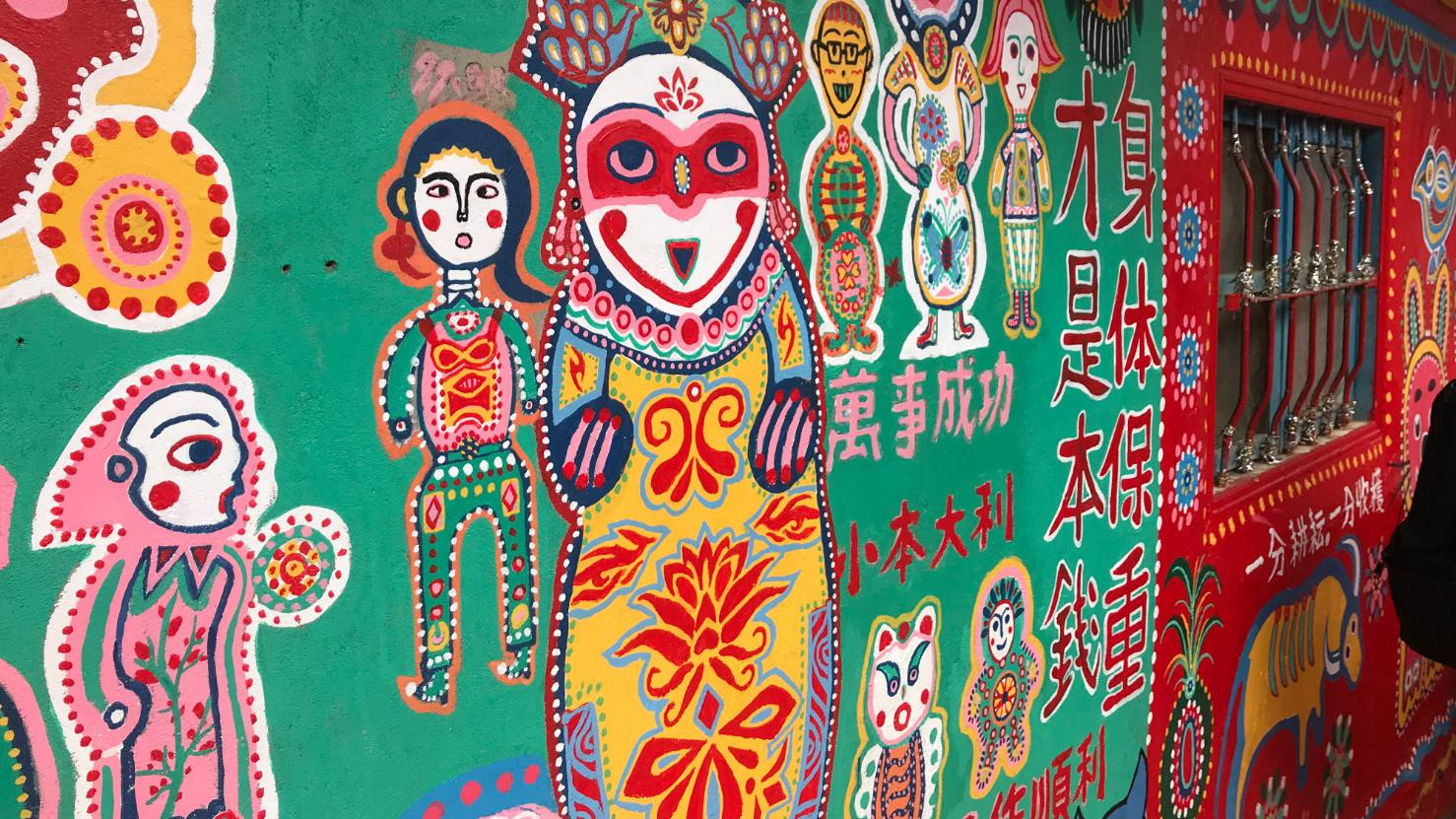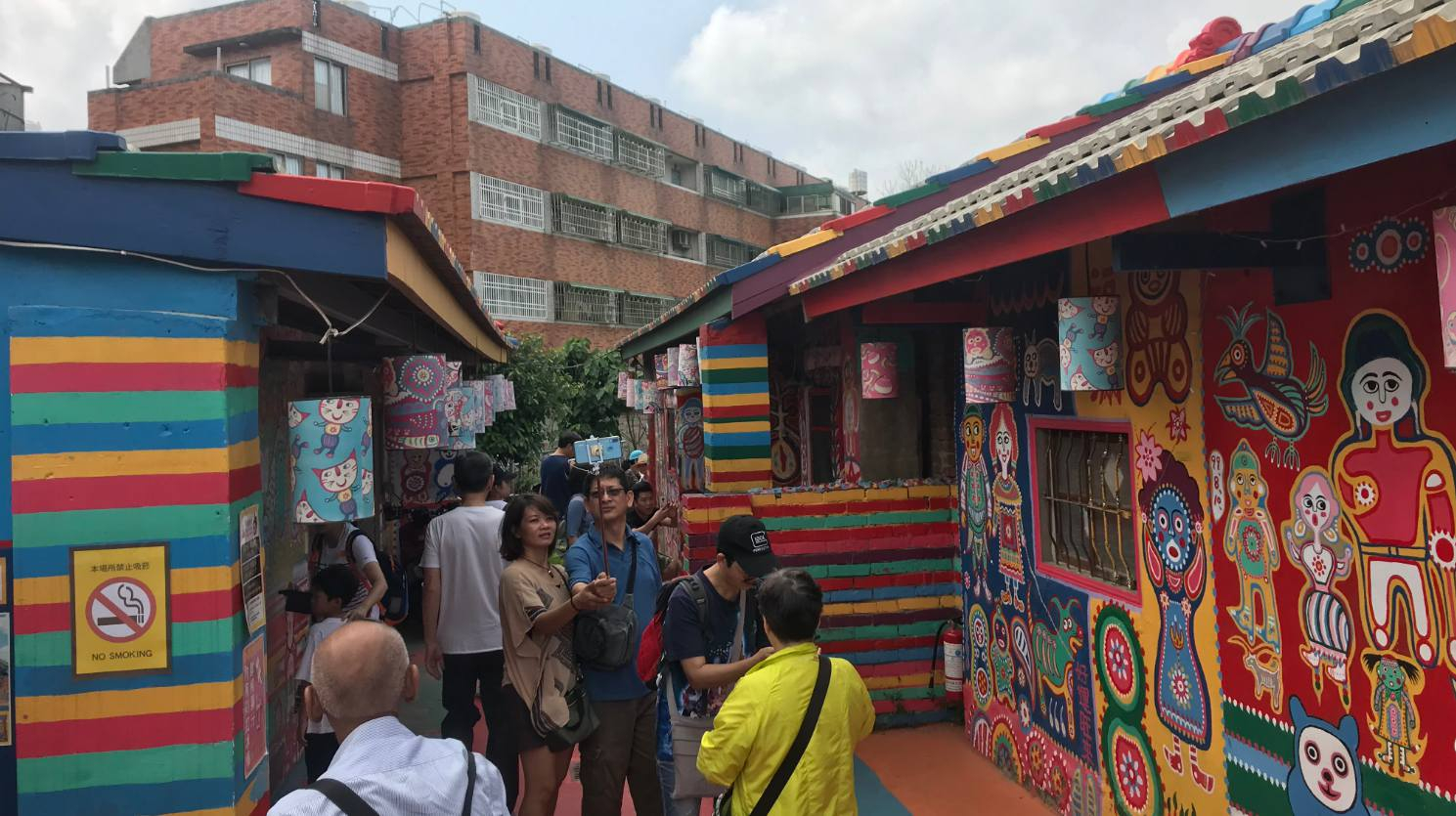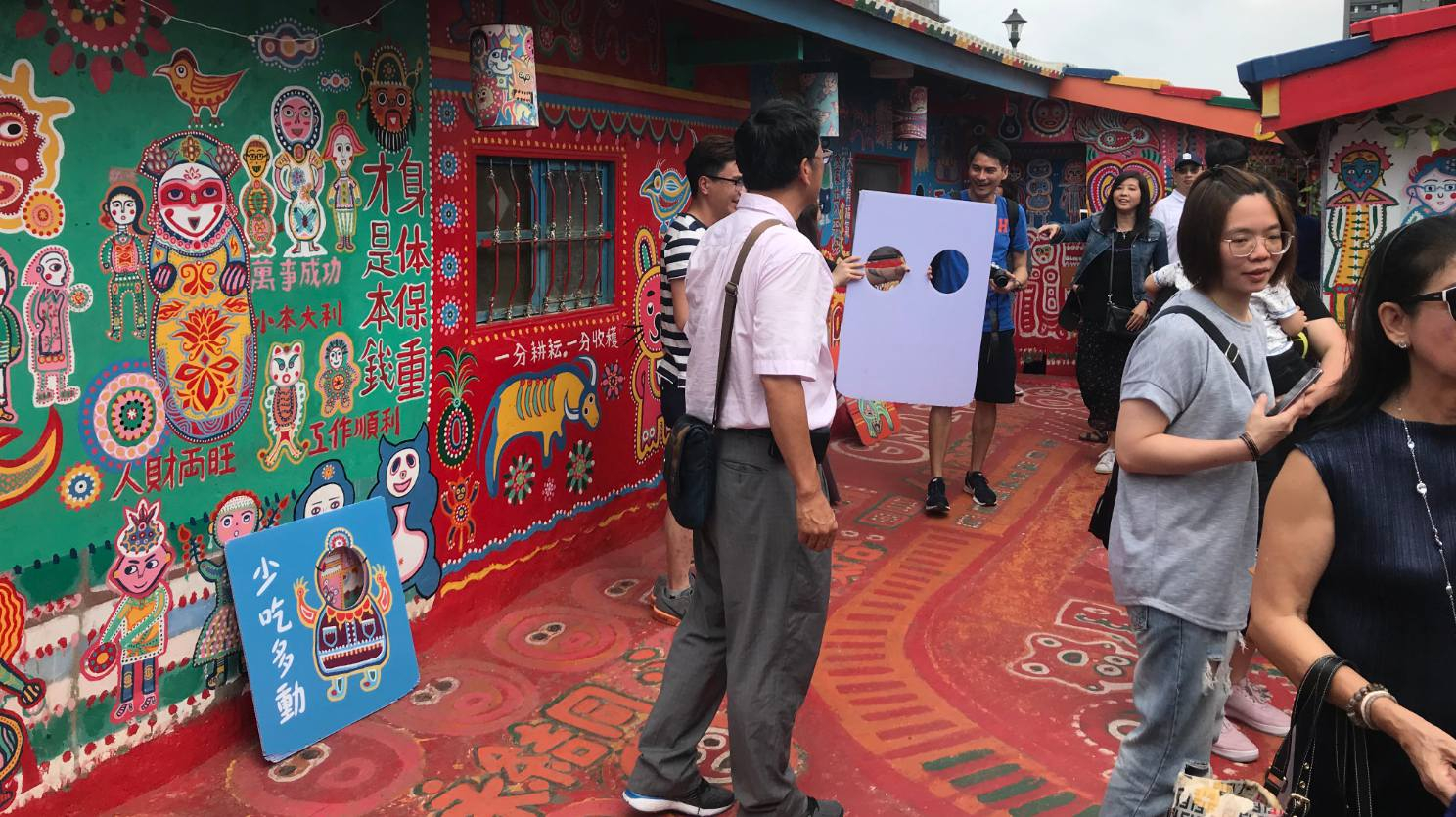
Culture
18:43, 01-May-2019
Paintings of 'Rainbow Grandpa,' 97, save Taiwan village
Updated
18:56, 01-May-2019
By Barnaby Lo
01:45

Huang Yongfu started drawing when he was just three years old, but when a civil war broke out in the Chinese mainland in the mid-1900s, the obligation to fight trumped any interest to pursue art.
He settled in Taichung City in Taiwan after getting injured and hasn't moved since. At 97 of age, he and his wife are the only residents left in a former veterans' community in the city.
"There were three villages here with 1,200 houses. Residents came from all over China. I'm from Guangdong," Huang said.
How Huang managed to stay, despite developers buying out almost all the land around him, is a story about life going full circle.

Visitors at the "Rainbow Village." /CGTN Photo
Visitors at the "Rainbow Village." /CGTN Photo
A little over 10 years ago, after having abandoned art for decades, Huang decided to pick up a brush.
"I was bored and I did not want to leave so I started painting. I was supposed to paint 16 houses, but I ended up painting only 11," Huang said.
He began with the walls inside his house. The first thing he did when he got up from bed before dawn was to paint.
"I like painting images of girls," Huang said.
And then he moved on to the walls outside his home, and to those of 10 adjacent houses. The collection of images quickly grew from human caricatures to tigers, kittens, and all sorts of creatures with colors so bright they appear to be leaping out of the walls – all with child-like characteristics that hark back to his younger years.

Visitors at the "Rainbow Village." /CGTN Photo
Visitors at the "Rainbow Village." /CGTN Photo
Soon, a small colony of 11 rainbow-colored houses, known now as the "Rainbow Village," emerged, and it began to attract faculty and students from a nearby university.
"When we learned about houses in the village getting demolished, we felt it would be such a waste for (Rainbow) Grandpa's artwork to disappear forever, so we lobbied for its preservation," said Wyatt Lin, who is now one of the people running the village and helping take care of Huang.
The mayor of Taichung then, Hu Zhiqiang, heeded the clamor to turn the residential village, or what's left of it, into an art park, consequently shielding it from any private development.
"When I learned my house was not getting torn down anymore, I was so happy. It inspired me to continue painting," Huang said.
Huang would have contented with the preservation of his home, but it was just a matter of time before other locals and visitors to Taichung City noticed. Today, the village runs almost entirely on business made from tourists, the number of which has surpassed a million annually.
In fact, some of those who helped spare Huang from having to leave his home are now working full-time in the village.
"This place is something Taichung City can really be proud of, so as a local, I want to be able to continue contributing to its growth and preservation," said Lin.
Huang may not be able to paint as often as he did anymore, but he takes time to interact with visitors. A number of lucky ones have gotten his artwork on paper, with a signature that does not bear his name, but reads "Rainbow Grandpa."

SITEMAP
Copyright © 2018 CGTN. Beijing ICP prepared NO.16065310-3
Copyright © 2018 CGTN. Beijing ICP prepared NO.16065310-3